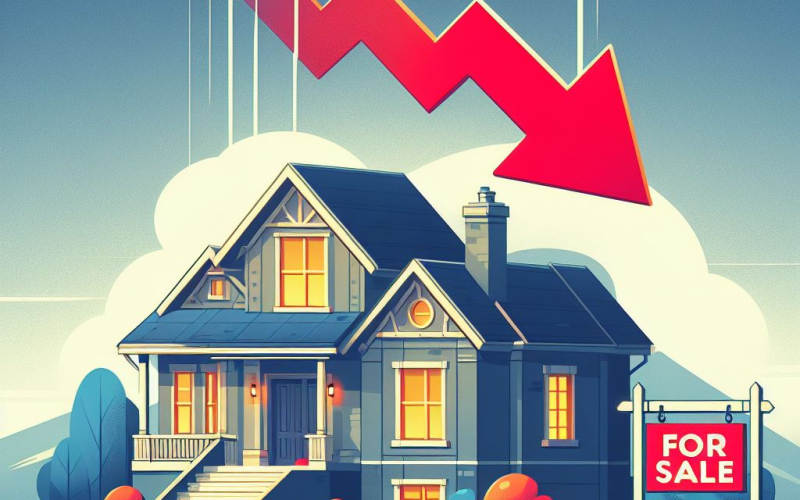Introduction
Meet John Doe, a seasoned real estate analyst with over a decade of experience in the housing market. His expertise in mortgage rates and their impact on the real estate industry has made him a trusted voice in the field. In this article, John will guide us through the ripple effect of volatile mortgage rates on contract signings.
Understanding Mortgage Rates
Mortgage rates are the interest rates applied to a mortgage loan. They are determined by a variety of factors, including the lender’s policies, the state of the economy, and the creditworthiness of the borrower. Understanding these rates is crucial for anyone involved in the real estate industry.
The Volatility of Mortgage Rates
Mortgage rates are not static; they fluctuate based on various economic indicators. Factors such as inflation, economic growth, and the housing market’s health can cause these rates to rise or fall. This volatility can have significant implications for homeowners, real estate developers, and bankers.

The Ripple Effect on Contract Signings
When mortgage rates are volatile, it creates uncertainty in the real estate market. This uncertainty can stall contract signings as both buyers and sellers may hesitate to commit to a deal. For example, if rates are expected to rise, buyers might delay signing a contract in the hope that rates will drop again. Conversely, if rates are expected to fall, sellers might delay signing a contract in the hope of getting a better price for their property.
Real-life Implications for Homeowners
For homeowners, volatile mortgage rates can make it difficult to plan for the future. If rates rise significantly, it could increase their monthly mortgage payments, putting financial strain on the household. On the other hand, if rates fall, it could present an opportunity to refinance the mortgage and save money.
Implications for Real Estate Developers and Bankers
Real estate developers and bankers also feel the effects of volatile mortgage rates. Developers may find it harder to sell properties if high rates deter potential buyers. For bankers, volatility can lead to a decrease in mortgage applications, affecting their bottom line.
Navigating the Volatile Mortgage Landscape
Despite the challenges, there are strategies to navigate the volatile mortgage landscape. These include keeping a close eye on economic indicators, considering fixed-rate mortgages to mitigate risk, and seeking professional advice when needed.
Conclusion
Volatile mortgage rates can have a ripple effect on contract signings, impacting homeowners, real estate developers, and bankers. However, with careful planning and strategic decision-making, it’s possible to navigate this landscape successfully.
Table: Key Points
| Heading | Summary |
|---|---|
| Understanding Mortgage Rates | Mortgage rates are determined by various factors, including lender policies and economic conditions. |
| The Volatility of Mortgage Rates | Mortgage rates fluctuate based on economic indicators, causing uncertainty in the real estate market. |
| The Ripple Effect on Contract Signings | Volatile mortgage rates can stall contract signings as buyers and sellers may hesitate to commit to a deal. |
| Real-life Implications for Homeowners | Volatile mortgage rates can affect homeowners’ financial planning and opportunities to refinance. |
| Implications for Real Estate Developers and Bankers | Developers may struggle to sell properties, and bankers may see a decrease in mortgage applications due to volatile rates. |
| Navigating the Volatile Mortgage Landscape | Strategies include monitoring economic indicators, considering fixed-rate mortgages, and seeking professional advice. |










